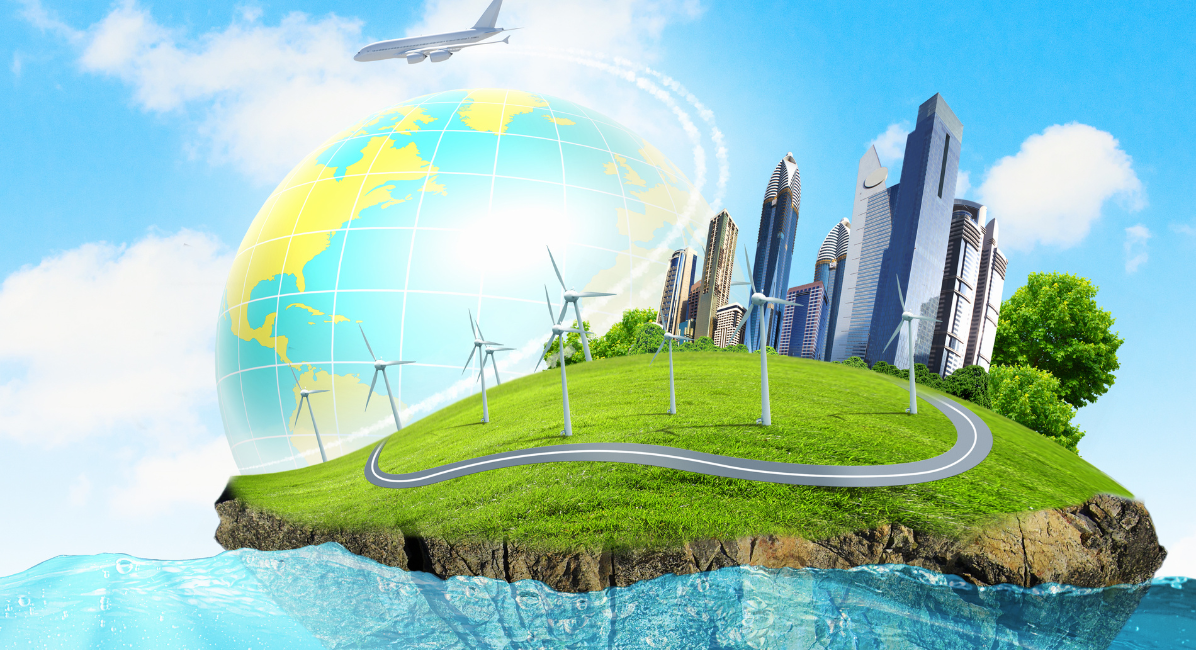DISCOVER OUR EXPERTISE
Connecting...
We are living in a time where we can no longer afford to ignore the impact of technology on our environment. Our beloved gadgets and devices have an ecological price tag.
Sustainable tech and green energy are much more than just trendy hashtags for the gram.
When people think of Dubai, their first words may be futuristic, bustling, busy and populated but here’s another word that they are actioning across the city – sustainability. Dubai is swapping bling for green and is taking strides toward an eco-friendly future.
Let's take a look at how Dubai is doing just that.
We all know Dubai doesn’t do casual; it's all or nothing. The government is throwing so much money into a greener city, with huge research, development and investment plans in renewable energy, water and electricity initiatives. The goal: to have the smallest carbon footprint in the world by 2050.
There’s also the Mohammed bin Rashid Al Maktoum Solar Park, the largest single-site solar park on the planet. Once complete, this will reduce a whopping 6.5 million tonnes of carbon emissions annually.
The UAE has reportedly committed around $1.3 billion to renewable energy projects in 65 countries! The country has also recently announced updates in its energy strategy to invest $54.5bn in renewables to reduce the effects of climate change.
Mohammed Al Shamsi, Chief Officer for Climate Change & Sustainability at the Dubai Electricity and Water Authority (DEWA) reported that tackling climate change is a top priority for the country. Earlier this year he confirmed the distribution of 350 charging stations for electric cars across Dubai, water network losses were trimmed down to less than 4.5%, and electricity network losses to a mere 2.2% - both figures are outstanding compared to the global average.
It doesn’t stop there. The Middle East's first hydrogen pilot project has also been launched to accelerate renewable energy integration and deployment in the region. As a result of these initiatives, the UAE has managed to cut down a whopping 73 million tonnes of carbon emissions from 2006 to 2021.
Flying taxis are also on the horizon (genuinely we thought this was a joke at first). These aircrafts are designed with safety and efficiency in mind, ensuring passengers a seamless journey from start to finish. Plus, they’ll operate with zero emissions, making them an environmentally friendly mode of transportation. In the meantime, back on the ground, the Dubai Roads and Transport Authority (RTA) aims to switch their entire taxi fleet to fully environmentally friendly electric, hybrid cars by the year 2027. In line with RTA’s roadmap for transforming public transport means into emission-free by 2050.
The Dubai Taxi Corporation are currently trialing the use of Tesla Model 3 in its limo fleet too with plans to convert at least 90% to the eco-friendly vehicle by 2026.
And it's not just Dubai.
The MENA region is going big on renewables from solar power plants in Morocco to wind farms in Egypt.
Saudi is literally owning the term - ‘go big or go home’. They are taking it one step further than the rest. Vision 2030 is a forward-thinking game plan launched by the Kingdom of Saudi Arabia in 2016. At its core, this visionary plan seeks to promote sustainability by reducing reliance on oil, diversifying the economy and becoming a more modern and globally competitive nation by 2030.
The heart of their vision: sustainability. Saudi Arabia is powering towards a greener future by implementing initiatives that support renewable energy, environmental preservation and the development of sustainable cities. By prioritizing sustainable practices, Saudi Arabia strives to improve the well-being of its citizens and environment.
NEOM – the smart city will come from 100% renewable energy sources (sun and wind) and there will also be hydrogen-based power generation ensuring zero-emission living. The future is really here!
Is it time for you to go green? If you feel that you would thrive in a greener economy it may be worth taking a look at opportunities in the Middle East. So many countries in the region are working hard to make their cities more eco-friendly and overall pleasant places to live in, with the environment and people’s well-being a top priority.










